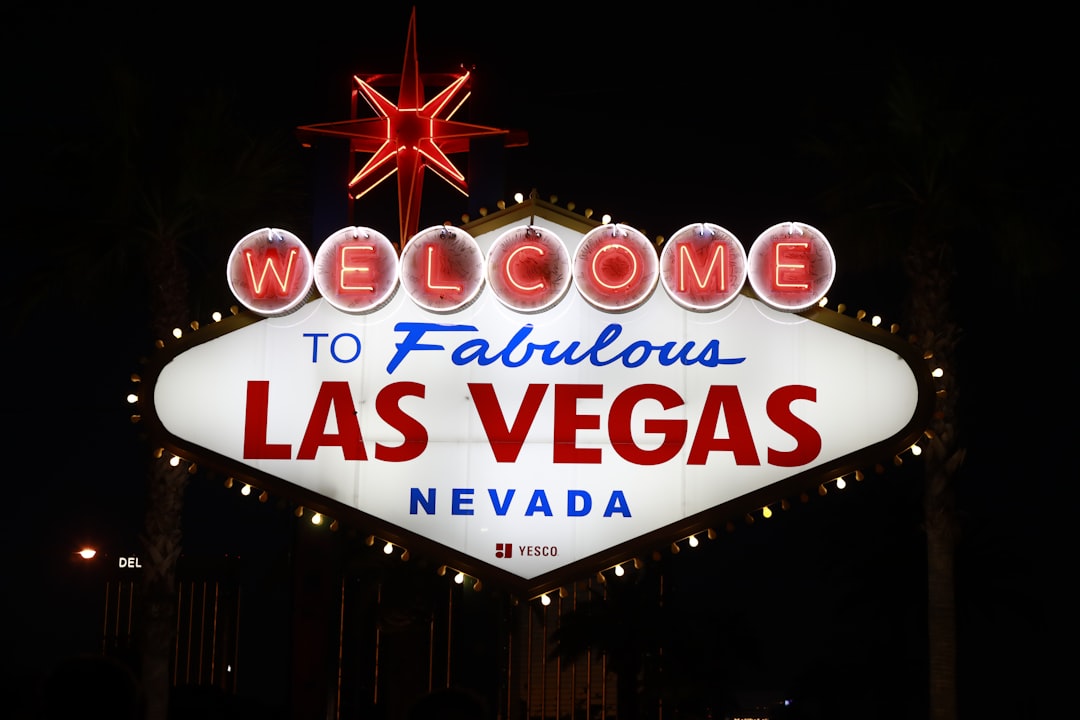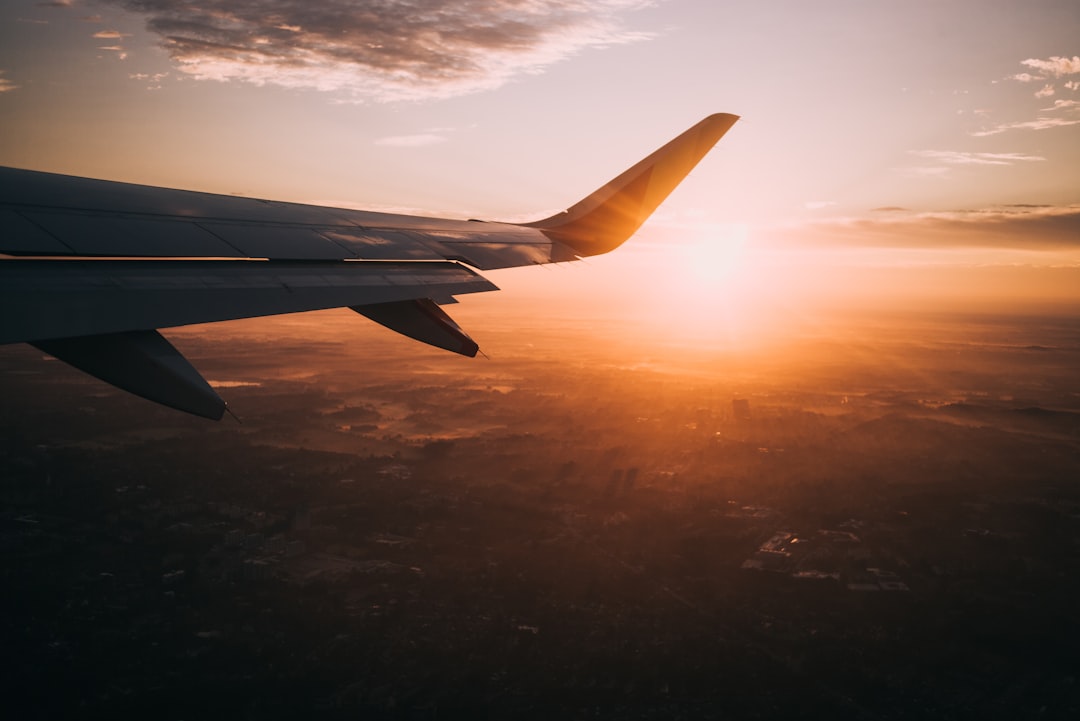Unveiling the True Cost A Detailed Analysis of Las Vegas Vacation Packages in 2024
Unveiling the True Cost A Detailed Analysis of Las Vegas Vacation Packages in 2024 - Flight and Hotel Combinations Actual Savings Revealed
When exploring Las Vegas vacation packages in 2024, the combined flight and hotel option presents itself as a potential avenue for cost reductions. Platforms like Expedia and Southwest Vacations are prominent players in this arena, with packages starting at remarkably low prices and advertised savings reaching up to 100% on airfare when coupled with a hotel booking. However, achieving these substantial discounts often necessitates complying with specific conditions, like booking well in advance or dealing with restricted travel periods, which can impact trip flexibility. While certain providers promote package prices spanning from the low $200s to just over $400, this wide range highlights the importance of a meticulous comparison across offers. Despite the potential for significant savings, travelers must carefully dissect the details of each package to truly assess their value and ensure they align with their travel preferences and budget. It's not always a straightforward path to savings.
Examining actual data from various travel websites reveals a mixed bag when it comes to the advertised savings of flight and hotel combinations in Las Vegas. While many sources highlight the potential for significant discounts—even up to 100% in some cases—the reality is more nuanced.
Expedia, for instance, emphasizes substantial flight savings within bundles, suggesting a strong incentive to package. However, Southwest Vacations offers a more modest 40% discount, coupled with strict booking deadlines. This variability suggests the savings aren't uniform across platforms, potentially tied to factors such as airline partnerships or specific promotional periods.
The pricing of different vacation package types further complicates the picture. Packages designed for specific traveler profiles (e.g., families, couples, luxury travelers) show varied price points, implying that simply bundling isn't the only factor influencing cost.
Platforms like Vegas.com also show that combining travel with attractions and shows within a bundled package can become a significant aspect of price fluctuations, not solely dependent on the flight-hotel combination. Furthermore, broad searches on platforms like Travelocity reveal substantial price variations for ostensibly similar packages, further questioning the consistency of the savings.
Specific examples like the American Airlines Vacation package highlight that while potentially attractive, prices can fluctuate wildly based on factors such as the chosen hotel. This suggests that the allure of a bundled package must be tempered with careful comparison to potentially find genuine cost-effectiveness.
It's also crucial to note that the advertised discounts often come with caveats, including restrictions, blackout periods, and a constant possibility of price changes. This implies a degree of unpredictability that travelers should consider when relying on the promise of "bundled savings." The reality, therefore, is that while the potential for substantial savings through bundled packages exists, it's not universally guaranteed. Careful analysis of specific offers and a thorough comparison across various platforms are crucial to achieving the desired value.
Unveiling the True Cost A Detailed Analysis of Las Vegas Vacation Packages in 2024 - Hidden Fees in All-Inclusive Packages Uncovered
All-inclusive vacation packages often promise a carefree escape, but the reality can be less idyllic due to the presence of hidden fees. While some Las Vegas packages, particularly those from established providers, strive for transparency by incorporating taxes and tips into their upfront pricing, this practice isn't universal. Many packages might deceptively advertise "all-inclusive" while overlooking potential surcharges for services like resort activities, rental cars, or specific amenities. Travelers need to carefully examine the fine print of any package before committing to it. Otherwise, what may seem like a financially sound choice can rapidly become a burden due to unexpected costs. It is critical to scrutinize all details to avoid a vacation turning into an expensive lesson. The abundance of Las Vegas vacation options necessitates thorough research and careful selection to ensure the dream getaway doesn't morph into an unexpected financial strain.
### Hidden Fees in All-Inclusive Packages Uncovered
When exploring Las Vegas's all-inclusive vacation packages, it's easy to get caught up in the promise of a streamlined, worry-free vacation. However, a closer look reveals a potential undercurrent of hidden fees that can significantly impact the overall cost.
One common pitfall is the "resort fee". These fees, which can range from $25 to $50 per night, are often not included in the initial price. While they may cover services like Wi-Fi, pool access, or gym usage, this can erode the perceived value of the all-inclusive deal. It's akin to being offered a "free" meal only to later find out that drinks and appetizers are not included.
Taxes are another layer that can obscure the true cost. Services included in the package might have hidden tax implications. Certain areas may levy special taxes on all-inclusive resort operations, resulting in an unexpected financial hit. This adds an element of ambiguity to the budgeting process.
Then there's the issue of gratuity. While the packages might suggest that everything is covered, often tips for service staff are excluded. This can create a scenario where, particularly in a service-heavy environment like a hotel or restaurant, you need to factor in additional cash expenses. This could accumulate rather quickly, leading to a more significant impact on your overall expenses.
Additionally, many all-inclusive resorts showcase unlimited dining options, but a deeper inspection can reveal limitations. Specialty restaurants or dining experiences may carry additional fees or have strict reservation requirements. This can make the 'unlimited' aspect less comprehensive than advertised.
Similarly, with activities, the package may advertise a broad range, but popular options like water sports, guided tours, or entertainment might be excluded, leading to additional costs that negate the original intent of the all-inclusive offering.
Bundled deals that include airfare may also create illusions. The advertised low airfare may be used to artificially lower the perceived hotel costs, making the package look more appealing. However, it's possible that booking the flight and hotel separately could be cheaper, especially for cost-conscious travelers.
Minimum stay requirements are another source of hidden expenses. While these requirements may not be upfront and obvious, they can significantly impact the per-night costs if a traveler intends to stay for only a few nights. This might create situations where the package price feels deceptive if it's not initially transparent.
Furthermore, cancellation policies within these packages can be restrictive. The fine print often contains hidden fees for last-minute changes or cancellations, limiting the flexibility that many associate with all-inclusive experiences. This limits traveler flexibility and could result in significant losses.
Even seemingly straightforward aspects like room upgrades can carry an element of surprise. The advertised room type might include the option to upgrade, but this may come with an unexpected extra cost, creating a disconnect between the initially advertised package and its delivery.
Finally, for international travelers, the added layer of currency conversion fees can arise. These fees can vary and affect the overall cost depending on the specific exchange rates at the time of payment. This potentially impacts the package cost in ways not initially considered.
Understanding these hidden fees is essential when making informed decisions about vacation packages. By examining the fine print and questioning the implied "all-inclusive" nature, travelers can mitigate surprises and ensure that their vacation aligns with their budget and expectations. It's important to evaluate the totality of the offer rather than relying solely on the initial attractive price.
Unveiling the True Cost A Detailed Analysis of Las Vegas Vacation Packages in 2024 - Transportation Expenses Beyond the Airport Shuttle
Beyond the initial airport transfer, navigating Las Vegas requires careful consideration of transportation expenses. While airport shuttles offer an economical option, particularly with some hotels offering free shuttle services, understanding the range of transportation choices and their associated costs is crucial. Taxi fares, for example, can vary depending on destination and time of day, potentially creating unexpected costs. Rideshare services like Uber and Lyft provide a convenient option, but their pricing structures, heavily influenced by demand and distance, can lead to higher expenses than anticipated. While some hotels provide free shuttles, these services often have limited availability and require advanced planning. Essentially, understanding the diverse options and their potential cost implications is vital when constructing a realistic budget for your Las Vegas vacation. Failing to consider these factors can easily lead to overspending, especially when hidden fees and fluctuating prices are not accounted for.
Transportation costs in Las Vegas extend beyond the initial airport transfer, often presenting a nuanced picture that can affect the overall budget. While airport shuttles provide a relatively affordable option, other transport choices come with their own set of price variables and considerations.
Ride-sharing services like Uber and Lyft are popular, but their prices can fluctuate wildly depending on demand. During popular events or weekends, surge pricing can inflate fares considerably, potentially tripling the usual cost. It's wise to factor in this possibility when planning travel, especially during peak times.
Many hotels advertise free parking, but a growing trend involves daily parking fees, particularly on the Strip. These fees, ranging from $10 to $30 a day, can accumulate quickly, especially if you plan on using your own vehicle for exploring. It's essential to be aware of these fees when comparing hotel options.
For budget-minded travelers, the Regional Transportation Commission of Southern Nevada offers a cost-effective public transit system. Passes allow unlimited rides on buses, including the popular Deuce and SDX lines that cover the Strip. A three-day pass for around $20 can be an economical choice for exploring the city without breaking the bank on taxis or ride-sharing.
Major resorts often run free shuttles between their properties, making it possible to easily visit multiple destinations without needing to pay for transportation. However, these services usually operate within specific time windows, which requires a bit of planning for maximum benefit.
The Las Vegas Monorail provides a convenient and relatively inexpensive alternative to taxis or rideshares. A single ride is around $5, but multi-day passes are available at a lower cost per ride. For instance, a 7-day unlimited pass can be obtained for about $56, which might be a viable option if you plan to use the monorail often.
Unforeseen transportation expenses can also arise. Certain routes, particularly those outside the immediate Las Vegas area, can involve toll roads. These toll fees, although often modest, can catch travelers off guard if they aren't familiar with the area.
Outside of shuttles, various other transportation options exist from the airport. Besides taxis and rideshares, private car services are available and could be competitive for group travel. For a more luxurious experience, exotic car rentals are also offered, or you could consider a unique approach with a helicopter tour. These options, however, tend to be significantly more expensive, with some luxury experiences exceeding $1,000 depending on factors like vehicle and the duration of the trip.
Las Vegas traffic can be notoriously congested, particularly during peak season or major events. This congestion can drastically increase travel times, making it important to factor in buffer periods when planning activities. Unexpected delays can make it difficult to arrive at shows or restaurants on time.
Lastly, the possibility of emergency medical transport must be considered. Local ambulance services can be extraordinarily expensive, a cost not often factored into regular travel plans. Unexpected health issues during a vacation can result in a hefty bill, highlighting the importance of travel insurance and emergency planning.
In conclusion, while airport shuttles offer an initial cost-effective solution, many other transportation choices exist in Las Vegas. Each method comes with its own price considerations, from surge pricing in ride-sharing to unexpected parking fees and toll roads. Thorough planning and awareness of the various options can help optimize your travel budget and ensure your vacation doesn't become unexpectedly costly due to transportation expenses.
Unveiling the True Cost A Detailed Analysis of Las Vegas Vacation Packages in 2024 - Entertainment and Dining Budgets Reality Check
When crafting your Las Vegas vacation plans, it's crucial to take a step back and realistically assess your entertainment and dining budgets. The reality of spending in Las Vegas, particularly when it comes to entertainment and dining, can often differ significantly from initial expectations. While affordable dining options are readily available, with many restaurants offering meals under $15, the temptation to indulge in more upscale experiences can quickly inflate your expenses, particularly in popular tourist destinations. Las Vegas, rightfully known as the "Entertainment Capital of the World," offers an astounding variety of attractions, from free public spaces to world-class performances. However, the costs of attending popular shows, concerts, and events can escalate unexpectedly. It's important to be aware of potentially hidden costs, such as additional fees or unexpected charges, which can easily throw off your financial planning. In the end, a balanced and realistic assessment of both your dining and entertainment spending is essential. This will help ensure your trip stays within your budget while still allowing you to enjoy the thrill and excitement that Las Vegas is renowned for.
Las Vegas, known as the Entertainment Capital of the World, offers a dazzling array of dining and entertainment experiences. However, the allure of this vibrant city can be deceptive when it comes to budgeting. While it's possible to find affordable options, a realistic assessment of the typical costs for entertainment and dining is crucial for a financially responsible vacation.
One of the primary budget concerns is the cost of food. While a few restaurants offer meals under $15, the average cost for a mid-range restaurant can quickly climb to $30-$50 per person. For more upscale dining, a single meal can easily exceed $150, making dining out a major expense for many travelers.
Entertainment expenses can also add up rapidly. Tickets for major shows, depending on the performer and seating, can range from $50 to over $300. If you're planning to see multiple shows, these costs can far surpass your initial expectations, making it essential to factor them into your overall budget.
Beverage costs also deserve consideration. Alcohol prices in Las Vegas venues are often inflated. Expect to pay at least $15 for a typical cocktail, and the cost can climb considerably in high-end bars or nightclubs. This can throw off your dining budget estimates if not specifically planned for.
Furthermore, be mindful of service charges. Many establishments automatically add a service charge or auto-gratuity, usually around 18-20%, to the bill. These fees aren't always readily apparent on initial menus and can significantly increase the final cost of a meal.
The promise of happy hour deals can seem like a great way to save, but these offers often have restrictions on timing and availability. Many establishments only offer these specials during early evening hours, limiting their benefit to those with specific time constraints or schedules. This may make it more challenging to take advantage of discounts if your itinerary involves other entertainment.
While Las Vegas offers a number of free attractions, such as the Bellagio Fountains or the Fremont Street Experience, the time spent experiencing these free activities can indirectly affect the time allocated for other planned activities. This could potentially lead to rushed experiences or, worse, cause you to spend additional money to make up for lost time in your itinerary.
Dining and entertainment packages, which seem like a way to save, can be deceptive. They often come with limitations like specific time windows or limited availability. These constraints can end up requiring additional unplanned spending in order to fit everything in, leading to the potential of paying more than anticipated.
Buffets are a seemingly affordable option with prices ranging from $20 to $50 per person, but the temptation to overindulge can lead to wasted food and potential discomfort, negating the initial cost savings, particularly when factoring in potential multiple visits.
Location also plays a significant role in budget planning. Restaurants and shows located on or near the Strip typically have higher prices compared to similar experiences found off the Strip. Being aware of this price difference can help you decide where to allocate your spending.
Lastly, hidden fees are common in many entertainment venues. Be aware of reservation fees, VIP experience charges, and other extra costs that can easily lead to inflated budget figures if not factored into the original financial plan.
In conclusion, while Las Vegas is a city designed for entertainment and fun, budgeting for a trip here requires careful consideration. By being mindful of these realities, you can better manage your spending and avoid financial surprises that might otherwise hinder your enjoyment of this dynamic destination.
More Posts from mightyfares.com:
- →7 Overlooked Amenities at Orlando Airport Hotels That Make a Real Difference for Late-Night Arrivals
- →7 Lesser-Known Amenities at Brentwood TN Hotels That Business Travelers Actually Use in 2024
- →7 Lesser-Known Travelocity Features for Finding Budget-Friendly Flights in 2024
- →Travelocity's 2024 Flight Search Algorithm 7 Key Improvements for Savvy Travelers
- →Navigating Travelocity's Customer Service A 2024 Guide to Phone Support Options and Wait Times
- →7 Hidden Costs in All-Inclusive Vacation Packages That Most Travelers Overlook in 2024



